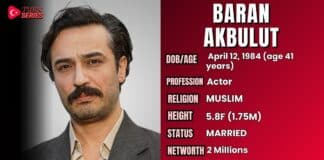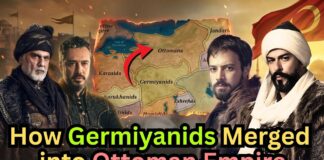He didn’t seek glory, demand praise, or rule through terror. Yet city after city opened its gates to him.
This is not the story of a conqueror who burned his name into history with fire and war. This is the story of Orhan Bey—the man who quietly built the foundations of the Ottoman Empire, one strategic move at a time.
In a world that remembers loud victories, Orhan’s legacy is whispered through cities still standing, roads still used, and systems still admired.
The Year Was 1323: A Legacy Begins
As Osman Ghazi lay dying, his son Orhan was preparing to step into leadership. Osman had envisioned a growing state; Orhan would deliver it.
He wasn’t a man of sudden storms. He was more like time itself—patient, unstoppable, and deliberate.
The Siege of Bursa: A Lesson in Persistence
The First Major Victory
-
Target: Bursa
-
Timeline: 6-year siege
-
Tactics: Encirclement, blockade, starvation
-
Result: Peaceful surrender in 1326
Bursa didn’t fall to swords. It fell to strategy.
When Orhan finally entered the city, he didn’t loot it—he buried his father there and named it the new capital of the Ottoman Beylik.
Nicaea Falls: Diplomacy Over Destruction
Nicaea, a sacred Byzantine city, once hosted Christian councils and Roman emperors. Between 1328 and 1331, Orhan laid siege—slowly tightening his grip.
When the city fell:
-
No mass slaughter
-
Churches preserved
-
Greek administrators retained
-
Christian citizens protected
This shocked the Byzantine world more than bloodshed ever could.
Nicomedia: Breaking Byzantium’s Last Hold
In 1337, Orhan captured Nicomedia (İzmit)—the last major Byzantine stronghold in Anatolia.
Without crowning himself king or sultan, Orhan now ruled more land and people than many Christian monarchs.
Beyond the Battlefield: Orhan’s Tools of Power
Orhan didn’t just win with armies. He wielded:
-
Diplomacy: Married Theodora, daughter of Byzantine Emperor John VI
-
Integration: Hired Christian officials, allowed multi-religious governance
-
Urban Development: Built schools, mosques, markets, roads, and public baths
-
Innovation: Introduced one of the first standing Ottoman armies
-
Cultural Wisdom: Founded a madrasa in Bursa, investing in education
The Ottoman Entry into Europe
A Political Masterstroke
In 1346, Orhan’s alliance with Emperor Kantakouzenos opened new doors.
-
Marriage to Theodora
-
Military support in Byzantine civil war
-
Strategic reward: Permission to cross into Europe
1352: The Ottomans Cross the Bosporus
-
Location: Çimpe Castle, Gallipoli
-
Commander: Süleyman Pasha (Orhan’s son)
-
Method: Quiet occupation, no bloodshed
-
Impact: First permanent Ottoman foothold in Europe
Then, in 1354, an earthquake devastated Gallipoli.
Süleyman seized it immediately—turning misfortune into a military gain.
Striking Like a Serpent: Expansion into Europe
From Gallipoli, the Ottomans launched raids into Thrace, Macedonia, and Bulgaria.
These weren’t invasions. They were calculated probes:
-
Test enemy strength
-
Secure local alliances
-
Strike where resistance was weakest
Some Christian lords began negotiating, paying tribute, or even switching sides—Europe was crumbling from within, and Orhan barely had to lift a sword.
Tragedy Strikes: The Fall of Süleyman Pasha
In 1357, Orhan’s son and top commander Süleyman Pasha died in a horse accident.
The loss devastated Orhan. He withdrew from politics and slowly faded from the public eye.
The Death of a Founder: Orhan’s Final Years
By 1362, Orhan Bey passed away.
-
He ruled over three decades
-
Captured Bursa, Nicaea, Nicomedia, Gallipoli
-
Minted coins, organized a professional army
-
Laid the foundation for an empire
But he never called himself Sultan.
No palaces. No poems. No monuments demanded.
He was buried next to his father, Osman Ghazi, without fanfare.
Orhan’s Legacy: The Builder of Empires
Orhan Bey didn’t conquer with fire.
He conquered with structure, tolerance, and vision.
What Made Him Different?
-
Took cities without bloodshed
-
Turned enemies into allies
-
Created systems, not just victories
-
Wrote history in stone—not in fire
He built the staircase from which legends like Murad I, Bayezid, and Mehmed the Conqueror would rise.







